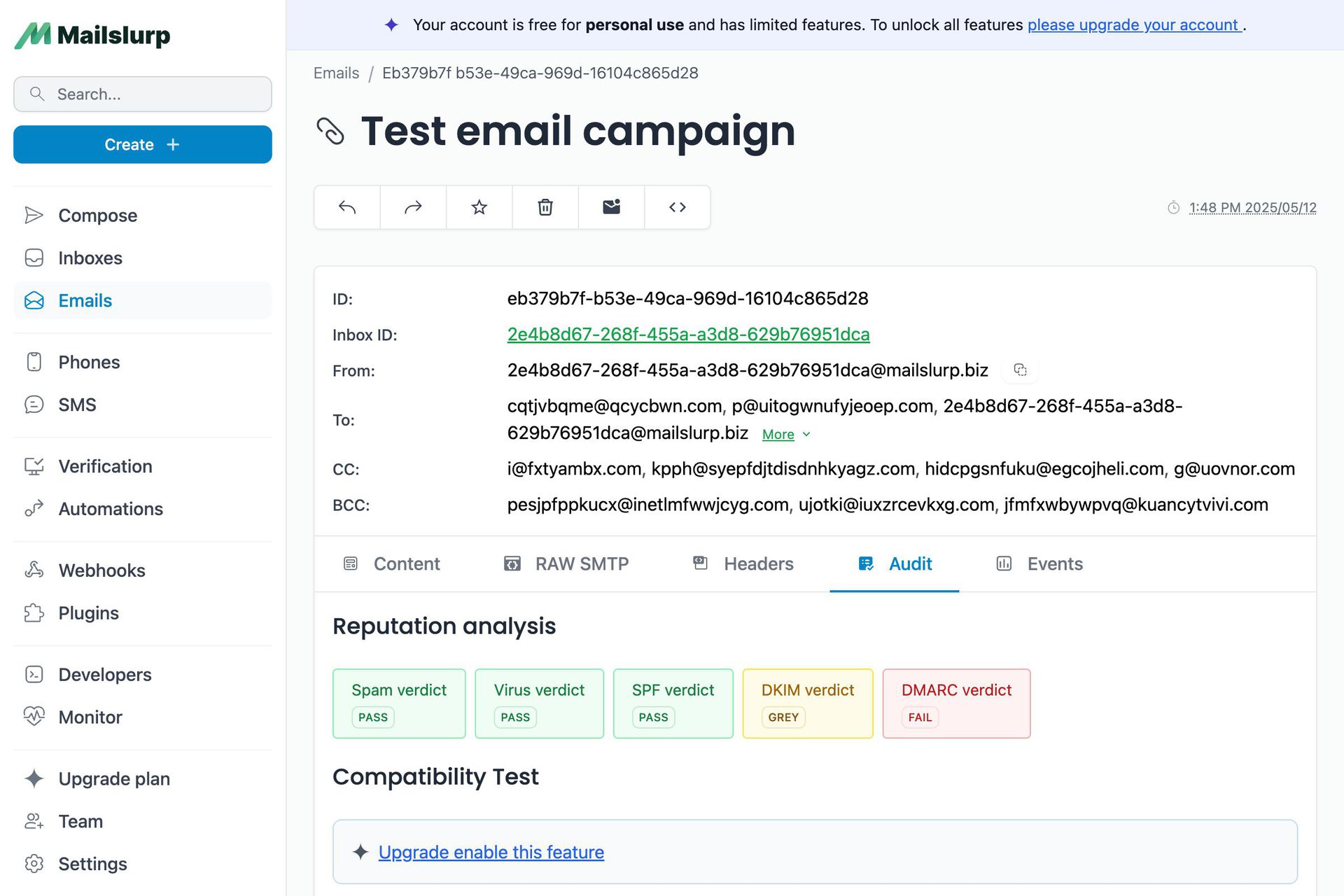Videos
Check out our tutorial video series.
Streamline Email Processing: Use MailSlurp Email APIs to Efficiently Fetch and Process Emails in Tests or Apps. Get Started For Free!

MailSlurp is a free API for that lets you read emails in test and code.

Many applications today have the need to either send or receive emails. Perhaps your app needs to receive invoices from customers via email; or you want to test user sign-up processes with real email addresses. In each instance you need to somehow get SMTP messages into memory from within a test or application. You also want these emails to arrive as soon as possible and without flaky polling strategies.
For applications An SMTP queue system with push notifications would be ideal. That way our server can save unnecessary HTTP polling and batching and instead react upon each inbound email directly. MailSlurp SMTP WebHooks offer a solution.
For tests (that can afford to block CPU while waiting for a specific email) a simple HTTP call that holds a connection until an email of interest is found or timesout would suffice.
Luckily both options are available using email APIs like MailSlurp. Email APIs let you send and receive emails outside of the SMTP protocols. They provide an abstraction layer over the standard email messaging protocol.
MailSlurp is an email API. It was originally designing specifically for receiving emails in tests and applications and later expanded to include other features like sending of attachments and email account generation.
Receiving emails with MailSlurp is easy. Install an official SDK library to your project (or use the REST API). Create an email address using the method. Decide if you want to use a WebHook or waitFor method.
The emails received are in a JSON format that looks something like this:
MailSlurp is free for personal use and has support for receiving emails in Csharp, Java, Node, Python, PHP, Ruby and more. Check it out at mailslurp.com.
Check out our tutorial video series.
Email and SMS guides for automation and testing.
View github project code for multiple languages.
Latest posts from the MailSlurp team.
Test, build, and automate messaging with a free MailSlurp account.
